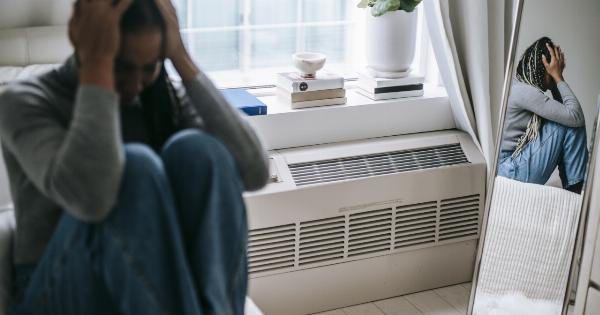Isolation, defined as the state of being alone or separated from others, has a significant impact on an individual’s overall well-being. Over the past year, millions of people around the world have experienced isolation due to the Covid-19 pandemic.
This unprecedented event has highlighted the importance of understanding how isolation can affect a person’s physical and mental health.
Physical Effects of Isolation
Isolation can lead to a range of physical health problems, from obesity to cardiovascular disease. When a person is isolated, they tend to have less physical activity, as they may not have access to workout facilities or companions to exercise with.
This lack of physical activity can lead to weight gain and a variety of health issues, such as high blood pressure and type 2 diabetes.
Isolation can also lead to decreased immune system function. Studies have shown that when a person is socially isolated, their immune system is not as effective at fighting off infections. This can lead to an increased risk of illness and infection.
Furthermore, isolation can lead to disrupted sleep patterns. When a person is isolated, they may not have a regular routine, which can cause them to have trouble falling asleep or staying asleep.
This can lead to fatigue, which can further affect a person’s physical health.
Mental Effects of Isolation
The mental health effects of isolation are just as significant as the physical effects. Studies have shown that isolated individuals have higher rates of depression and anxiety.
This is because isolation can lead to feelings of sadness, loneliness, and hopelessness.
Additionally, isolation can lead to cognitive decline. When a person is isolated, they may not have as many opportunities to engage in activities that promote cognitive function, such as reading or problem-solving.
This can lead to a decline in memory and cognitive abilities.
Isolation can also lead to an increase in stress. When a person is isolated, they may feel more pressure to handle everything on their own.
This can cause stress, which can lead to a range of negative physical and mental health effects, including increased risk of heart disease and depression.
Combatting the Effects of Isolation
While isolation can have significant negative effects on a person’s physical and mental health, there are ways to combat these effects. One of the most effective ways is to stay connected with others.
Even if a person cannot be physically present with others, they can still stay connected through virtual means, such as phone calls or video chats.
Another way to combat the effects of isolation is to prioritize self-care. This can include engaging in physical activity, getting adequate sleep, and practicing mindfulness and meditation.
These activities can help reduce stress and promote overall well-being.
Finally, seeking professional help can also be effective. If a person is struggling with the mental health effects of isolation, they should consider reaching out to a mental health professional, such as a therapist or counselor.
These professionals can provide strategies and support to help people overcome the negative effects of isolation.
Conclusion
Isolation can have a significant impact on a person’s physical and mental health. It can lead to a range of negative health outcomes, from obesity to depression.
However, there are ways to combat these effects, such as staying connected with others, prioritizing self-care, and seeking professional help. By taking proactive steps to combat the negative effects of isolation, individuals can maintain their overall health and well-being.






























